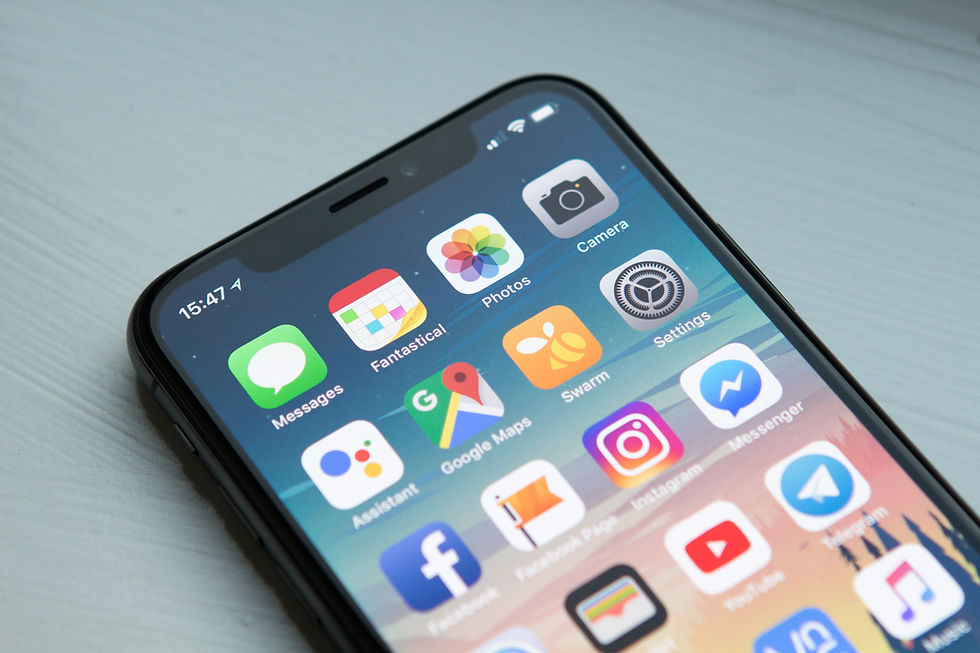Reclaiming Your Sound: Things to Know After Getting Hearing Aids
- a7894728
- Feb 26, 2024
- 4 min read
Congratulations on taking the step towards improved hearing with your new hearing aids! This journey will undoubtedly bring a world of new experiences and sensations, but it's important to be prepared for the adjustments that come with it. Here are some crucial things you need to know after getting hearing aids (HA):

It Takes Time to Adjust
Adjusting to hearing aids can be both exciting and overwhelming. Give yourself time to adapt to the new sensory input. It's okay to take breaks when you need them, especially when the sound or programming is significantly adjusted. Remember, patience and self-compassion are key during this acclimation period, which can take up to 4 months.
Why It Takes a While
Adjusting to hearing aids takes time because you're essentially retraining your brain to process sound in a new way. Here are the key reasons:
Physical Sensation: Wearing hearing aids can initially feel uncomfortable or even strange in the ears. It takes time for the wearer to get used to the sensation of having a foreign object in their ears.
Sound Perception: Hearing aids amplify sounds, which can be overwhelming at first. It may take time for the wearer's brain to adjust to these amplified sounds and learn to process them effectively.
Adapting to New Sounds: Hearing aids can pick up sounds that the wearer may not have heard clearly before, such as background noises or subtle sounds. Adapting to these new sounds and learning to filter out irrelevant noises can take time.
Speech Understanding: Hearing aids can improve speech clarity, but it may take time for wearers to adjust to hearing speech sounds differently. They may need practice to improve their ability to understand speech while wearing the devices.
Fine-Tuning: Hearing aids often require adjustments and fine-tuning to ensure optimal performance. It may take several visits to the audiologist for adjustments based on the wearer's feedback and changing hearing needs.
Psychological Factors: Adjusting to hearing aids can also involve psychological factors such as acceptance of hearing loss, self-image concerns, and feelings of frustration or impatience during the adjustment period.
Overall, patience, persistence, and support from audiologists and loved ones are crucial during the adjustment period. Above all, take this as your reminder to be kind to yourself in the process of welcoming a new world of sound into your life.
It's Going to Itch
It's perfectly normal for your ears to itch after wearing hearing aids. Don't be alarmed; it's just your ears getting used to the new sensation. Avoid the temptation to scratch excessively, as this could cause irritation. Instead, try gently massaging around the area to alleviate any discomfort.
Keeping them clean
Proper maintenance is crucial for the longevity and effectiveness of your hearing aids. Regularly clean your hearing aids according to the manufacturer's instructions. Consider using a case dedicated to your HA which is compatible to the model and brand of your HA. Use a soft brush or a UV cleaner/dryer to remove any wax, debris, or moisture that may accumulate over time.
During this period, it is also recommended to pay close attention to any wax accumulation on the mold or earpiece of your hearing aids. Excessive wax can affect the device's performance and your ability to hear clearly. If you notice significant build-up, it may be time for an ear cleaning appointment with your otolaryngologist or audiologist.
Keep Them Dry
Moisture is the enemy of hearing aids. Invest in a dedicated case to protect your devices from water damage. Whether you're caught in the rain or sweating during physical activity, it's essential to keep your hearing aids dry and free from moisture as much as possible.
There may be times when wearing your hearing aids isn't necessary or practical. For instance, when showering, swimming, or engaging in activities where they could get damaged. Listen to your body and use your discretion to determine when it's best to remove them.
To ensure your hearing aids are completely dry, consider using a dedicated hearing aid dryer. These devices are specifically designed to gently remove moisture using warmth, UV light, or other safe methods.
Explore App Features
Many modern hearing aids come with companion apps that offer customizable settings for different environments. Take the time to download the app and experiment with features like noise reduction, directional microphone, and wind noise reduction. These settings can significantly enhance your listening experience in various situations.

Invest in Ear Protection
While hearing aids improve your ability to hear, it's essential to protect the hearing you still have. Invest in a good pair of quality earplugs for loud environments like concerts, bars, or other noisy venues. These earplugs can help preserve your hearing while still allowing you to enjoy the event.
Suggested Read: Hearing Protection 101: Tips to Prevent Noise-Induced Hearing Damage (entfamily.com)
Getting hearing aids? Start your journey with ENT Family
If you're in Hollywood, Florida, and suspect hearing loss is holding you back, take the first step towards better hearing today!
Address: 3911 Hollywood Blvd#201, Hollywood, FL 33021, United States
Phone: 754-888-1368
Email: info@entfamily.com

.png)
Bình luận